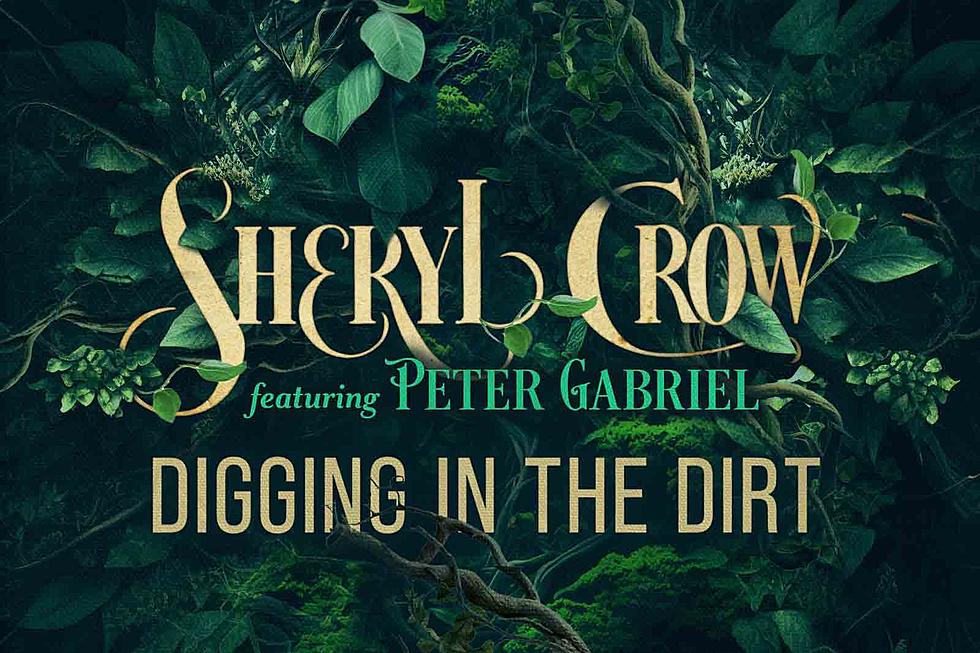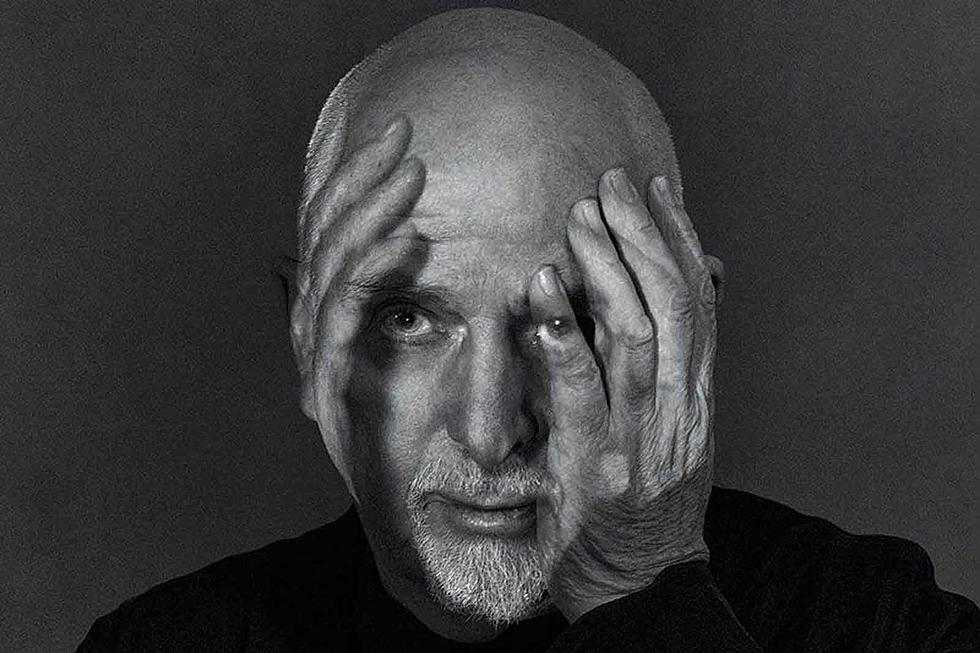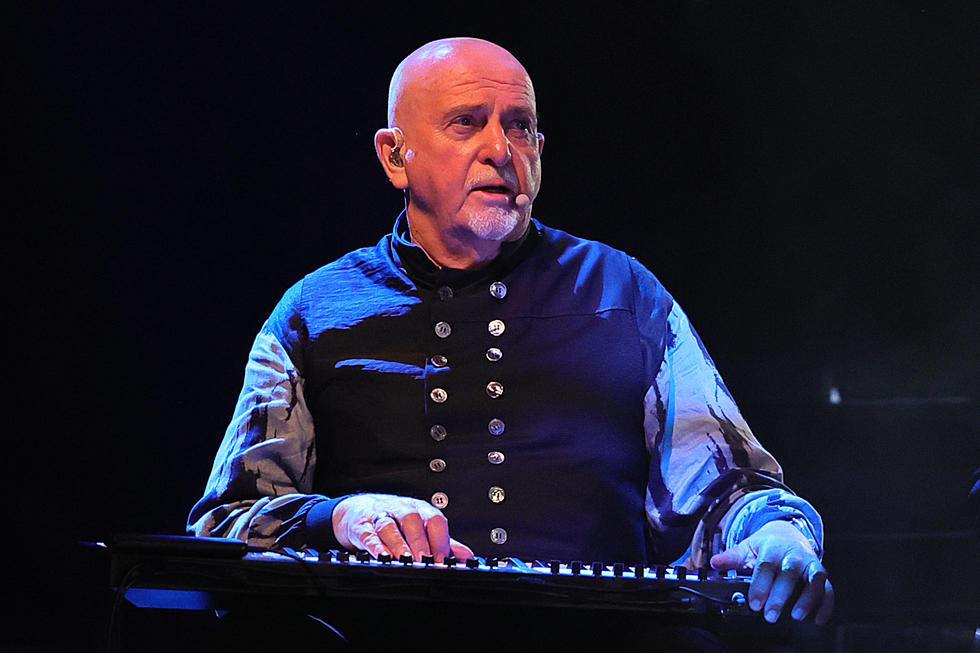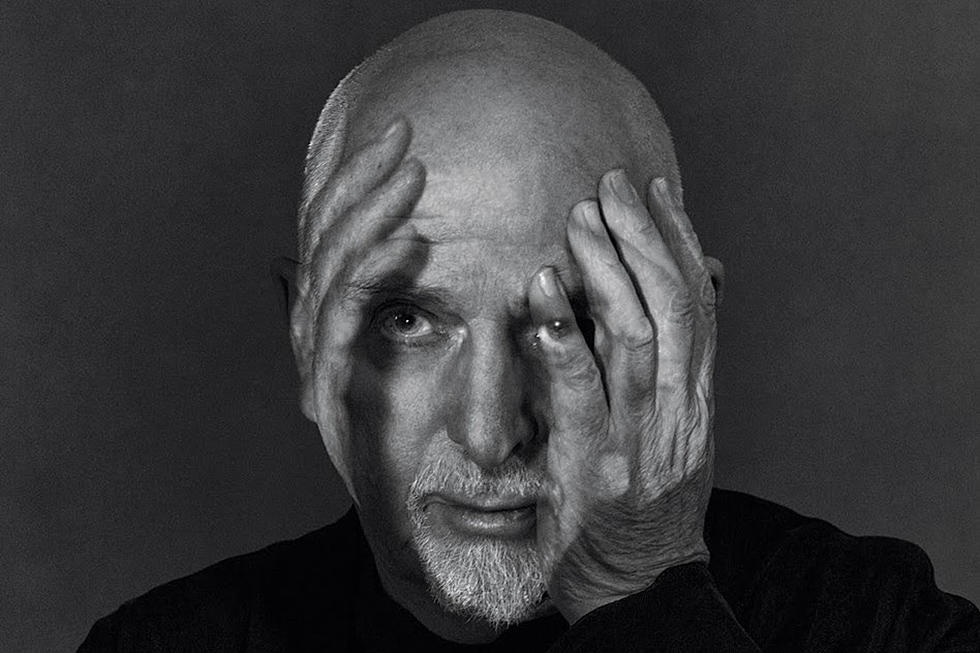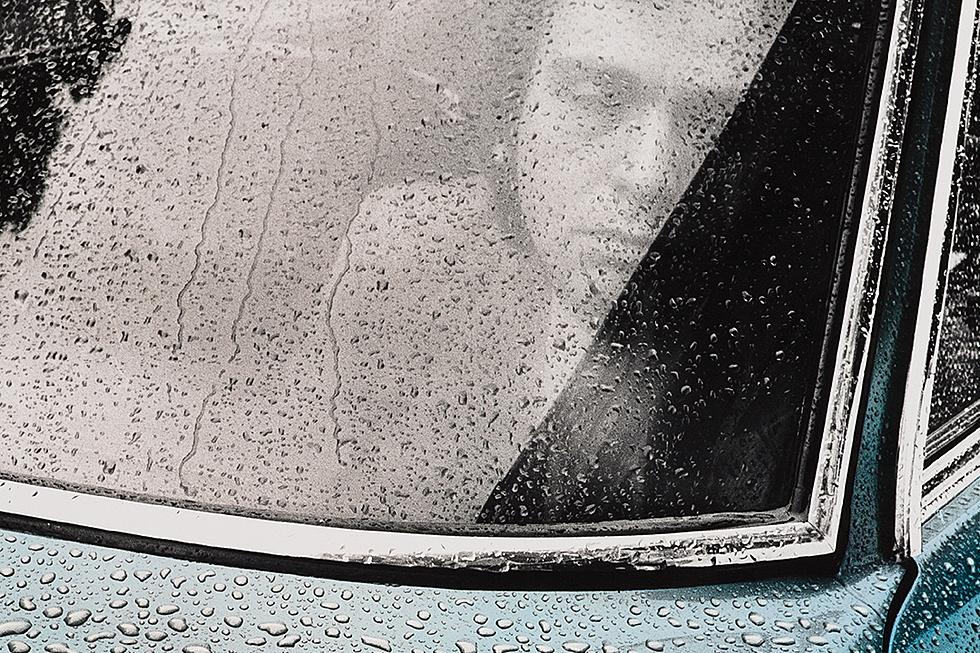
When Peter Gabriel Got Eclectic on His Self-Titled Debut
Genesis changed in a big way when Peter Gabriel left the lineup — and Gabriel underwent a significant creative evolution too, as fans heard for the first time with the release of his debut solo LP.
Gabriel's first self-titled record arrived in stores Feb. 25, 1977, and marked a major turning point away from the increasingly ambitious prog he'd helped spearhead with the group.
Part of the change simply had to do with time and distance — Gabriel had taken a significant break after leaving Genesis, and allowed himself the luxury of toying with several abandoned concepts, including the idea of a musical inspired by Moses, before settling into a slightly more traditional rock groove.
Bruce Springsteen Inspired Peter Gabriel
As recounted in Daryl Easlea's biography Without Frontiers: The Life and Music of Peter Gabriel, this journey was ultimately helped along by a couple of formative (and wildly different) events: Gabriel's night out at a Bruce Springsteen show in late 1975, and the creative environment near his home in Bath. After marinating in all this energy, Gabriel felt the pull back toward what he called the "hurly burly" of the record industry, and returned to the studio in 1976 to start sketching out demos.
READ MORE: Phil Collins and Peter Gabriel Albums Ranked
Gabriel hadn't been completely away during his sabbatical — he'd struck up a short-lived partnership with lyricist Martin Hall that produced a few songs, including the eventual Peter Gabriel track "Excuse Me," and contributed a cover of "Strawberry Fields Forever" to the soundtrack for All This and World War II — and starting in the summer of 1976, he decamped to London's Trident Studios with a group that included former bandmates Phil Collins, Anthony Phillips, and Mike Rutherford, who helped him flesh out his ideas.
Peter Gabriel Finds His Producer
It's unlikely that Gabriel ever considered tracking his solo debut with his former Genesis bandmates; as Phillips later pointed out, it was simply a case of the band always being a "closed system" and Gabriel lacking a musical community of his own when he left the lineup. Progressively more influenced by the vibrant local scene and changing overall trends at the time, Gabriel started casting about for a producer for the project, running through a list of candidates that included Todd Rundgren before ultimately settling on Bob Ezrin.
READ MORE: Genesis Solo Albums Ranked
Ezrin, arguably best known at the time for his work with Alice Cooper, struck many onlookers as a surprising choice, but the duo bonded over Gabriel's demos — and Ezrin also had a deep bench of session players ready to contribute to the sessions, including bassist Tony Levin, who'd come to be an integral part of Gabriel's solo career. For his part, Gabriel added a couple of key musicians of his own: synth player Larry Fast and guitarist Robert Fripp, the latter then at loose ends following the dissolution of King Crimson.
Peter Gabriel's Solo Debut Comes Into Focus
Gabriel and Ezrin's new combo coalesced around a nine-song suite that, while identifiably different from the stuff he'd done with Genesis, still ran an impressive musical gamut — from the prog-tinged opener "Moribund the Burgermeister" to the future FM classic and soundtrack mainstay "Solsbury Hill" and beyond. Although Peter Gabriel was, in retrospect, ultimately something of an outlier in Gabriel's eventual solo catalog, it still laid a rough template for what was to follow, at least in terms of his willingness to hopscotch unpredictably between genres.
Watch Peter Gabriel's 'Solsbury Hill' Video
Peter Gabriel's eclectic makeup didn't scare off audiences. Although "Solsbury Hill" — whose "risk it all or lose everything" lyrics alluded to his departure from Genesis — wasn't quite the radio hit its later pop culture presence might indicate, the album did well enough to prove he'd built a fairly solid fanbase on his own away from the band. More importantly, it demonstrated that Gabriel could indulge his creative restlessness while remaining within radio-friendly boundaries — a balance that would continue to serve him well.
Genesis Albums Ranked
Gallery Credit: Jim Allen
More From Ultimate Classic Rock
